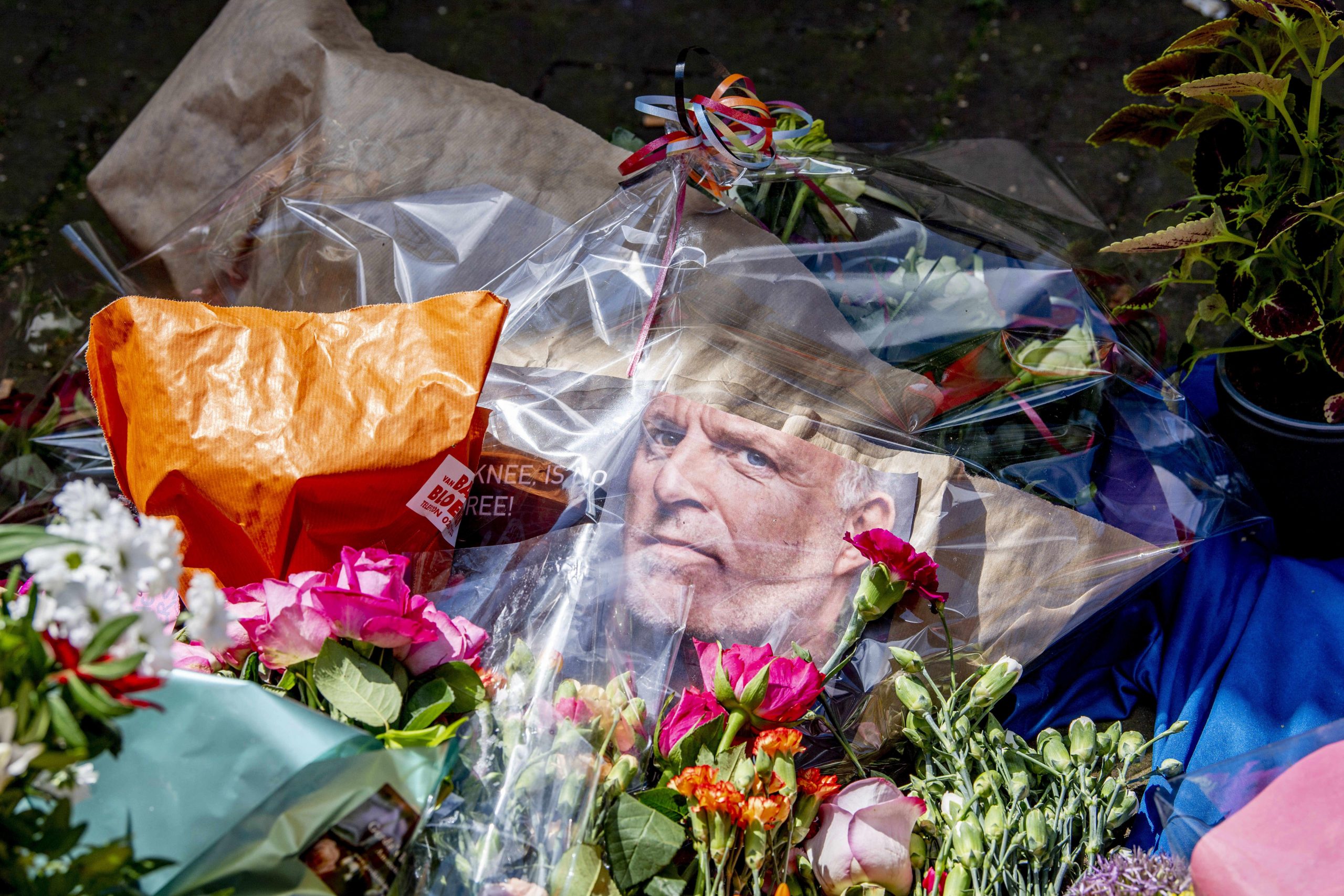[vc_row][vc_column][vc_single_image image=”117066″ img_size=”full” add_caption=”yes”][vc_column_text]Nine days after he was shot multiple times, Dutch crime reporter Peter R de Vries has died of the injuries he sustained, his family announced on Thursday afternoon. Peter will be remembered not only for his investigations and stories, but also for the way he stood in solidarity with crime victims, deeply motivated to help them find justice. It is widely believed that his decision to act as the confidant of a crown witness in a big organised crime trial was the reason for his murder.
Reactions to De Vries’s death have started to pour in. RTL, the station that broadcasts the daily news show RTL Boulevard, in which De Vries had appeared on the day he was attacked, said: “Peter’s influence remains stronger than any act of hate can ever be. We will continue to speak freely about wrongs and injustice in society, like he did his whole life.” The Dutch Association of Editors-in-Chief said: “Peter R de Vries was an icon of Dutch journalism and an incredible support for many people. It is intensly sad that he is no longer among us. With Peter, we lost an tireless and courageous fighter for justice.”
Many victims of crimes he investigated and solved expressed their sadness over De Vries’ death.
The crime beat
De Vries started his career in 1978 as a trainee-journalist at De Telegraaf, the biggest newspaper in the Netherlands. He started using the R of his second name Rudolf to distinguish himself from a colleague with the same name. Crime journalism wasn’t really a beat yet, but he took it up and soon published his first story about a murder.
He became more famous in 1983, when he reported about the kidnapping of beer magnate Freddy Heineken. The book he published about the kidnapping a few years later remained the bestselling true crime book in the Netherlands for years.
He left the paper within a year to become the editor-in-chief of the weekly Aktueel, which he soon turned into a crime magazine. After that, he switched to TV, although he always continued to write as well.
In the early 1990s, he went freelance and started the weekly TV show ‘Peter R de Vries, crime journalist’. An episode in 2008 brought international fame: he used an undercover reporter to trigger Joran van der Sloot, a suspect in the disappearance of US teenager Natalee Holloway on the Caribbean island of Aruba, into confessing. He won an Emmy Award for it.
Another one of De Vries’s investigations revealed one of the biggest errors of judgement in Dutch judicial history: two brothers were convicted of murder, but De Vries’ investigations lead to a re-trial and acquittal, after which the real murderer could be apprehended.
Apart from his investigation into the Heineken kidnapping, De Vries was not known for reporting organised crime. He mostly focused on cold cases, deceit and scams, standing beside the victims and often confronting perpetrators in front of the camera. Him being there carrying out his own investigations with a thorough knowledge of both the criminal world and the justice system became a fact of life for both police and prosecutors, who were relentlessly held to account by De Vries as well.
Looking in the mirror
Soon after the attack on De Vries’s life last week, two suspects were arrested: a 21-year old man from Rotterdam and a 35-year old man from Poland. Although the police investigation into the murder continues, it is assumed that they were hired by suspects in the so-called Marengo case, which revolves around an extensive, exceptionally violent drugs gang, lead by Redouan Taghi, who was arrested in 2019. Peter R de Vries was the confidant of the Crown witness in the case, Nabil B.
In an interview with monthly magazine Vrij Nederland, De Vries explained: “I couldn’t have looked at myself in the mirror anymore if I had refused his request. I hold the police and the prosecutor to account and I couldn’t do that if I recoiled from requests for help myself, even if they involved risks.”
The risk was clear: in 2018, Nabil B’s brother was murdered by Taghi’s men. A year later, Derk Wiersum, Nabil B’s lawyer, was murdered. To be able to get access to his client, he gave up his position in the law office of his son Royce, where he was director and advisor.
In the last couple of years, Peter R de Vries became increasingly vocal about social issues in the Netherlands, speaking up for the rights of refugees and against racism. Even though he was respected and popular in the Netherlands, this stance triggered a flood of hate and threats against him like never before, he said.
In 2016, he won an award for speaking out against racism and inequality with ‘courage and nerve, with arguments and substance and without fear’ – which sums up De Vries quite accurately.
Peter R de Vries was 64 years old. He leaves behind a partner and two children.[/vc_column_text][/vc_column][/vc_row]






